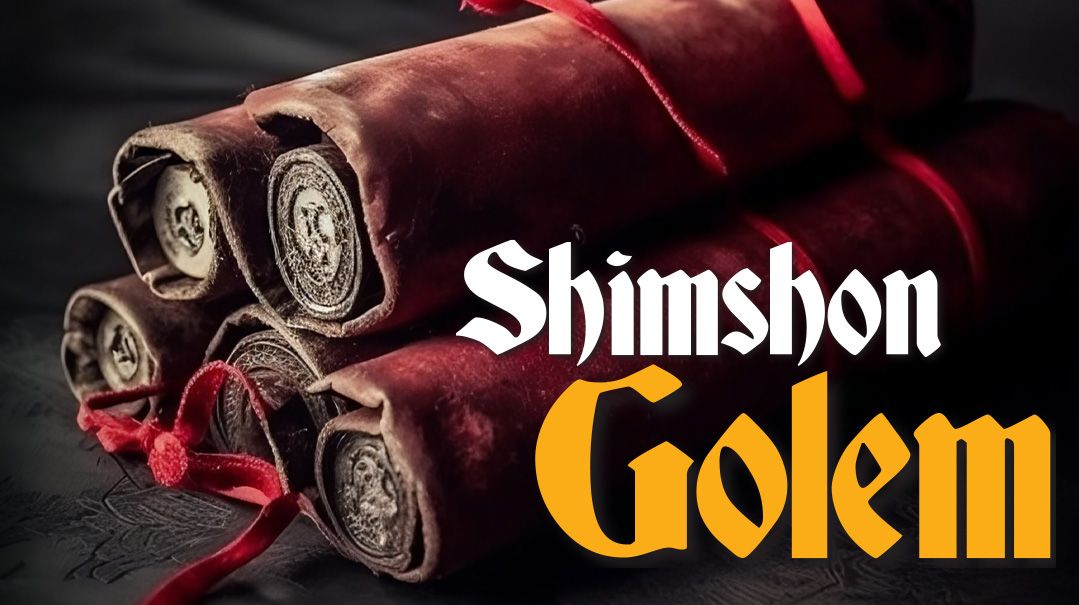The Hidden Palace: Chapter 4


“Good Shabbos! Good Shabbos!”
“A good Shabbos to you!”
Reb Shalom awoke suddenly from his bed as the sound of voices outside the palace filtered through the palace windows. He dressed quickly and ran outside.
“Is anyone here?”
Reb Shalom looked around the clearing but there was no one around.
“Shacharis! Shacharis!”
Again, someone was calling others to come daven but not a soul appeared inside the forest clearing. Reb Shalom went inside and donned a tallis. Presumably there was a minyan taking place and the best thing he could do would be to daven at the same time as they were.
A short while later he heard the chazan call out, “Barchu!” The sound of responding voices echoed through the trees. After davening, Reb Shalom entered the palace and ate the Shabbos seudah. When he finished he walked over to the table with the Gemara on it and sat down to learn.
As Reb Shalom learned he shuddered at how severely one who desecrates Shabbos is punished, as well as how greatly someone is rewarded for keeping all of the many halachos of the sacred day. The Gemara tells us that for great tzaddikim, Hashem is even stricter and holds them accountable for even the smallest of infractions.
“Oh, how careful one must be to observe all of the halachos of Shabbos Kodesh!” Reb Shalom cried out. “And how great is the reward for one who honors the Shabbos properly!”
*******
Indeed, Reb Shalom contemplated the marvelous stories written in Chazal about the precious gift of Shabbos and the massive reward for those who honor her properly. Inside the Gemara before him, an incredible story was recorded.
Reb Chiya Bar Abba was once invited to the home of an extraordinarily wealthy man who lived in Ludkaya, a city outside of Eretz Yisrael and Bavel. As they sat together at the rich man’s table, the waiters entered the room with a platter of food so huge that it needed 16 poles to support it! On the platter lay every type of food created during the Six Days of Creation.
A child sat in the center of this enormous platter and chanted the following pasuk as it was being lead toward the table. “Hashem’s is the earth and it’s fullness, the inhabited land and those who dwell in it!”
Reb Chiya understood that the rich man from Ludkaya had arranged for this child to sing this pasuk in order for him to remember that all of his gifts had come to him from Hashem and not due to his own strengths.
“My son,” Reb Chiya said, turning to the man in amazement, “from where did you merit all of this honor?”
“I was a butcher and I would set aside any animal that looked perfect, for Shabbos,” the man replied. “I would not sell it for all of the money in the world. It was designated in honor of Shabbos!”
“Then it is not for nothing that Hashem has blessed you with all of this,” Reb Chiya said emotionally. “Honoring the Shabbos is indeed a worthy enough mitzvah for you to receive such blessings.”
Chazal also tell us that even the most wicked people on this planet also honor Shabbos, one way or the other, as illustrated by the time Turnus Rufus, the evil rasha, tried to speak with his dead father by bringing his soul to him. On all of the days of the week his father would come to him, but on Shabbos he did not.
On the Sunday following, Turnus Rufus brought his father’s spirit to him and asked, “Where were you yesterday? Why do you not appear to me on Shabbos? Is it possible that after your death you suddenly became a Jew and must rest and not travel on that day?”
“Anyone that does not keep Shabbos willingly in This World must keep Shabbos unwillingly in the Next World,” his father replied.
“But what rest do you possibly need on Shabbos? What are you doing during the days of the week from which you need to take a break?” his son persisted.
“All week long we are punished in Gehinnom and on Shabbos we rest.”
(Excerpted from Mishpacha Jr., Issue 737)
Oops! We could not locate your form.


